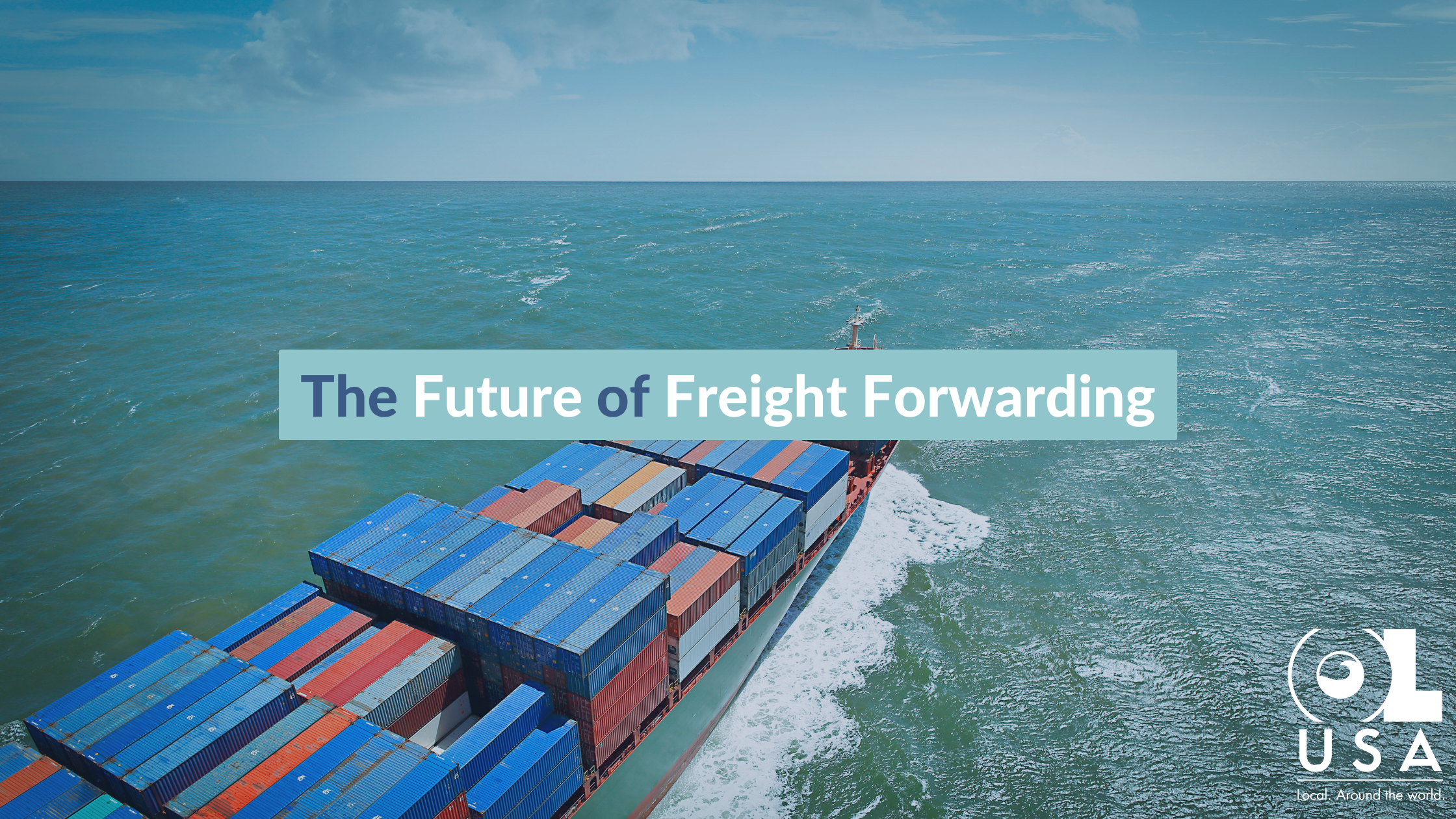Every industry changes over time, and ours is no exception. The past few years have already reshaped the landscape in a ton of ways, as we’ve all had to overcome challenges nobody saw coming. We faced multiple crises, saw high peaks and low valleys, and the scrappiest companies in the business managed to find new paths forward, and new ways to improve. But it’s not enough to just get by; we want to thrive. Here are a few ways we think this industry is going to change over the next several years. Some of these are already partially impacting the business, but we expect all three of these to start seeing real widespread adoption.
1. Internet of Things: It’s More Than Smart Fridges
IoT connectivity allows seamless integration and data exchange between different stakeholders in the supply chain, including freight forwarders, shippers, carriers, customs authorities, and customers. Through interconnected systems and shared data, the supply chain becomes more transparent, efficient, and reliable. Key information such as inventory levels, order status, shipping schedules, and documentation can be accessed in real-time by authorized parties. This enhanced visibility allows for better coordination, reduced delays, and improved decision-making. It also helps provide proactive identification and resolution of potential bottlenecks, ensuring smoother operations and customer satisfaction.
IoT and connectivity facilitate valuable data gathering throughout the supply chain. This data can be analyzed using advanced analytics and machine learning algorithms to spot crucial information that can help optimize freight forwarding operations. For example, historical shipment data can be analyzed to identify patterns and optimize routing, resulting in more efficient transportation and reduced costs. Data-driven decision-making enables freight forwarders to identify areas for improvement, make informed choices, and drive continuous optimization.
However, with the increased connectivity and data exchange, it is crucial to address the security and privacy concerns associated with IoT. Freight forwarders must implement robust cybersecurity measures to protect sensitive data from unauthorized access or breaches. Additionally, compliance with data protection regulations and standards should be ensured to maintain trust among stakeholders.
2. Sustainability: There’s Real Demand For It
The increasing awareness of environmental issues and the need for sustainable practices have led to a growing demand for green and eco-friendly solutions in the freight forwarding industry. As customers and businesses become more conscious of their carbon footprint, freight forwarders are under pressure to adopt sustainable practices and offer environmentally friendly transportation options. This demand for sustainability is driving significant changes in the industry.
Traditional freight forwarding heavily relies on fossil fuel-powered vehicles, such as trucks and airplanes, which contribute to carbon emissions and environmental degradation. However, the demand for sustainable solutions has led to a shift towards greener transportation methods. Freight forwarders are exploring alternative modes of transport, such as rail and sea, which have a lower carbon footprint compared to road or air transport. Rail transportation, in particular, is gaining popularity due to its energy efficiency and lower emissions per ton of cargo.
Moreover, innovative concepts like intermodal transportation, which involves using multiple modes of transport (e.g., combining rail and trucking), are being adopted to optimize routes and reduce emissions. This approach helps minimize the reliance on long-haul trucking, which is generally less fuel-efficient and more polluting. Additionally, collaborative initiatives among logistics providers are emerging to consolidate shipments and reduce the number of vehicles on the road, further minimizing carbon emissions.
Overall, the demand for sustainable and eco-friendly solutions is driving freight forwarders to embrace greener transportation methods and invest in alternative fuels and energy-efficient technologies. By integrating these practices, the industry can significantly reduce its carbon footprint and contribute to a more sustainable future. Additionally, the adoption of sustainable practices can also be a differentiating factor for freight forwarders, attracting environmentally conscious customers and aligning with the evolving corporate social responsibility initiatives.
3. Collaboration: Things Are Better Together
Collaborative logistics and the sharing economy are emerging trends in the freight forwarding industry, driven by the need for resource optimization, cost efficiency, and sustainable practices. Collaborative partnerships among logistics providers and shippers, as well as the implementation of cost-sharing initiatives, are transforming the way goods are transported and distributed.
In the traditional freight forwarding model, each logistics provider operates independently, handling its own shipments from start to finish. However, the rise of collaborative logistics has introduced a new approach that emphasizes cooperation and partnership among logistics providers and shippers. By collaborating with one another, companies can lean on one another’s strengths, resources, and expertise to enhance efficiency and deliver better services.
Collaborative partnerships can take various forms, such as sharing transportation networks, warehousing facilities, and distribution centers. For example, multiple logistics providers can share warehouse spaces, letting them consolidate shipments, reduce storage costs, and optimize order fulfillment. By pooling resources and sharing infrastructure, companies can streamline operations, reduce duplication, and achieve economies of scale.
The sharing economy concept is gaining traction in this industry. Collaborative platforms and digital marketplaces are emerging, connecting shippers with available transportation capacity. These platforms allow shippers to optimize their logistics needs by accessing a network of verified logistics providers, ensuring efficient utilization of resources. This sharing economy approach promotes sustainability by maximizing existing capacity and minimizing wasted resources.
We expect the future of freight forwarding to include a lot more collaboration than it has in the past. Building solid partnerships, optimizing resources, and implementing cost-sharing initiatives will help logistics providers and shippers achieve greater efficiency, reduce costs, and enhance sustainability. This collaborative approach is already reshaping traditional business models in other industries, and it’s time for this one to get on board.
The future of this industry will almost certainly involve embracing these trends and adopting a collaborative mindset. Building partnerships, optimizing resources, and implementing cost-sharing initiatives will be crucial for freight forwarders to thrive in an ever-changing landscape. By doing so, the industry can enhance efficiency, reduce costs, and contribute to a more sustainable and interconnected freight forwarding ecosystem. We think it’s time to embrace the opportunities presented by IoT, sustainability, and collaboration to shape the future of freight forwarding, and OL is going to be leading the way as we implement them in our own practices.



